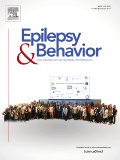We expect that Philip Augar will publish the report of his independent panel shortly. The Panel is advising the Department for Education on the Review of Post-18 Education and Funding and the Augar report has been badged by the DfE as an “interim” report. Although the Augar report will no doubt grab headlines, after much speculation and many alleged leaks over the last few months, it is only an interim report, and we will need to see what the DfE’s final report says. The Review itself was originally expected to report in March 2019- but may be delayed for other priorities. The government is expected to consult before implementing any changes, and had previously announced that any significant changes would take at least two years to implement.
Sadly both your resident policy wonks will be out of circulation next week but you can expect a bumper edition including the reaction from across the sector when we return.
You’ll find a link to the report here when it is published.
Brexit
So another string of meaningless votes this week – the next voting the fun will apparently take place in the last week of February. Having had their half term holiday cancelled next week the focus in Parliament will be on the secondary legislation required for Brexit rather than on the deal itself. The BBC has this useful explainer on the timing of all of this
The Lords European Union Committee has published their inquiry report on Brexit: the Erasmus and Horizon Programmes. You will recall that the government have confirmed that in a no deal scenario there is no back up plan for Erasmus, and that while students and staff already receiving funding will be protected, there is likely to be a gap before any new arrangements can be finalised.
The conclusions are set out below:
- The UK is a respected and important partner in both the Erasmus and Horizon programmes. It is a popular destination for mobility placements and a world leader in research with an exceptionally strong science base. The UK receives substantial amounts of funding from EU programmes, and other less tangible benefits built on decades of international cooperation with European partners. We strongly believe—and it was the unanimous view of our witnesses—that it is in the UK and the EU’s mutual interest to preserve current close levels of cooperation on research and innovation and educational mobility. We are encouraged by positive indications in the Political Declaration on the future UK-EU relationship that this will be possible.
Educational exchanges
- The Erasmus programme has played a significant role in facilitating the international mobility of people studying and working in the fields of education, training, youth, and sport in the UK. The programme offers unparalleled financial support and flexibility to enable people from lower income backgrounds, and those with medical needs or disabilities, to take part in educational exchanges. The Government should seek to ensure the UK remains part of this important initiative by seeking full association to the 2021–2027 Erasmus programme.
- The cost of participating in the 2021–2027 Erasmus programme is likely to be higher than for Erasmus+, as it will have double the overall budget. Nevertheless, we consider this a worthwhile investment to maintain access to Erasmus and the partnerships the UK has built within Europe through the programme over the past 30 years. It is clear, as the Minister himself noted, that the value of Erasmus cannot be measured simply in terms of financial contributions and receipts.
- As an associated third country the UK would be able to attend Erasmus programme committees but would lose its voting rights, reducing the UK’s strategic influence over the programme. We are reassured, however, that these meetings operate mainly on a collaborative basis and non-EU programme countries are regarded as “valued partners”.
- As a non-associated third country, the UK would not even have a seat at the table in Erasmus programme committees, and UK participants would have access to less funding and fewer exchange opportunities. We do not consider this to be an attractive option.
- If association to Erasmus cannot be negotiated, it will be essential to establish an alternative UK mobility scheme. ….Even with comparative financial investment, however, it will be impossible to replicate aspects of Erasmus which are key to facilitating international exchanges, namely, the programme’s strong brand, trusted reputation, common rulebook and framework for partnership agreements, and its established network of potential partners.
- Launching a new UK mobility scheme—or increasing investment in existing schemes—to extend mobility opportunities beyond Europe would be welcome in addition to continued participation in Erasmus….
Research
- We note the Government’s commitment to increase spending on research and development to 2.4% of GDP by 2027, and look forward to an ambitious new International Research and Innovation Strategy which affirms the centrality of research and innovation to technological progress and the future economic prosperity of the UK.
- A key part of this strategy should be to prioritise continued access to EU research framework programmes by securing association to Horizon Europe. The Government should ensure UK universities retain full access to EU funding opportunities and can participate in, and lead, collaborative research projects.
- We note that the UK’s access to Horizon Europe will be commensurate with the financial contribution it is willing to make to the programme. Given the anticipated increase in the budget for Horizon Europe, this is likely to be larger than the UK’s contribution to Horizon 2020. The financial rebalancing mechanism set out in the draft Horizon Europe Regulation would also prevent the UK from being a net beneficiary of EU research funding, as is currently the case. Nonetheless, an increased programme budget means that Horizon Europe will be able to support more grants and collaborative research projects than its predecessor. We urge the Government to agree an appropriate level of financial contributions to ensure the UK can access these opportunities.
- As an associated third country, the UK would have observer status in Horizon Europe programme committees but no vote and so would not have the same influence over the strategic direction of the programme as an EU Member State. Even so, given the strength of the UK’s science base and the significant role played by scientists in shaping research programmes, witnesses were confident that the UK can still remain an influential player in European research and innovation. We note that it will be important for the UK to “strike the right tone” in this regard, by seeking to ensure appropriate accountability for UK funds spent via Horizon Europe rather than by exercising overt political influence.
- If the UK participated in Horizon Europe on a ‘non-associated’ third country basis, it would lose access to key funding opportunities—notably European Research Council grants and Marie Skłodowska-Curie Actions—and would be left without any credible means of influencing the future development and funding priorities of the programme. While limited participation in Horizon Europe would still provide the UK with unique opportunities for collaboration which could not be replicated at the national level, it is clear that full association is the most desirable outcome for UK research and innovation.
- Additional UK research programmes will be needed to replace EU funding opportunities, if the Government is not willing or able to secure association to Horizon Europe. These programmes should maintain the breadth of funding across different subject areas and institutions provided by EU research programmes, and support advanced scientific research and international collaboration. The Government should work with the research community to determine what key features of EU funding should be retained in UK replacement programmes, such as the excellence-based funding criteria of the European Research Council.
- We commend UKRI’s willingness to work to develop prestigious domestic alternatives to EU schemes, if the UK loses access to them after Brexit. However, we note that it would take many years to emulate the tried and tested mechanism for international research collaboration provided by the EU framework programmes, the established research partnerships they support, and the EU’s joint infrastructure capabilities.
Cross-cutting issues
- The ongoing lack of clarity over the future availability of EU funds for mobility and research is causing considerable concern among students and researchers in the UK. Although association cannot be secured until negotiations on the draft 2021–2027 Horizon and Erasmus Regulations are complete, the Government should confirm its intentions regarding future UK participation in these programmes as soon as possible to maximise certainty and stability for potential participants, and enable them to plan for any changes.
- Whether the UK continues to participate in EU programmes or not, it will be important to ensure the UK’s immigration policy facilitates the frictionless exchange of students and researchers across borders. We welcome the Government’s confirmation in its recent Immigration White Paper that the UK will continue to welcome talented international scientists and researchers. The Government should work closely with the research community to ensure the UK visa system accommodates this ambition. Given the significant positive benefits international students bring to the UK, we also support the Government’s decision not to impose a cap on international student numbers.
Migration
From Dods: Universities UK have called on the Government to lower the proposed salary requirement for EEA workers to obtain a high-skilled visa to £21,000. Giving evidence at the Public Bill Committee on the Immigration Bill, this lays out for the first time the university sector’s specific feedback on the Migration Advisory Committee’s proposals.
Vivienne Stern, Director of UUKi, said: “While we recognise that migration checks and controls are necessary, they must not be at the cost of losing talent and leaving ourselves with a skills shortage at a time when focusing on productivity and growth is more important than ever. The Home Secretary himself has given our sector as an example of one where the higher threshold could be harmful. If the government works towards a threshold of £21,000, we feel this would allow recruitment for most technician and language assistant roles in the HE sector.”
Also from Dods: Migration Watch UK have published a paper arguing that, total net migration to the UK would increase by just over half to about 380,000/year if the proposals in the white paper become the basis of the future immigration system.
- The inflow of EU workers will continue at two-thirds of the average of the last five years. In total, therefore, we estimate that EU inflows will be approximately 160,000/year once the new immigration system comes into effect following the end of the transition period.
- We expect to see a total inflow of about 550,000/year from outside the EU following the end of the transition period. This is an increase of over 20% on the latest five-year period.
- In effect, EU migrants would be replaced – and more – by migrants from the rest of the world. The Government claim that their policy will restore sovereign control of our borders. In reality it will lead to higher levels of immigration
Civic Universities
From Dods: The UPP Foundation has published a report on strengthening the connection between universities and their places. This argues that the industrial strategy and devolution agenda have presented an opening for universities to pursue a more place based approach.
Recommendations:
- The Civic University Agreement – Civic Universities should enshrine their analysis and strategy in a Civic University Agreement that is co-created and signed by other key civic partners. .We think that the starting point for Civic University Agreements has to be:
- Understanding local populations, and asking them what they want.
- Understanding themselves,
- Working with other local anchor institutions, businesses and community organisations
- A clear set of priorities.
- Measuring and incentivising the success of the civic university. There should be a three-part approach to measuring – and therefore incentivising – the success of the civic university
- Local measurement
- Removing perverse measurement. It is clear that some of the current measures of teaching and research – which are often designed by government, rather than universities – mitigate against civic activity. Removing those is vital and in particular:
- Reducing the reliance of measures such as LEO (Longitudinal Educational Outcomes) in high stakes metrics such as TEF, that penalises universities for releasing graduates into regional labour markets with lower employment outcomes, or into self-employment which often involves a period of low / no wages.
- Any suggestion – linguistic or otherwise – in things like the REF that ‘local research’ is by definition inferior to international research
- National measurement. …In particular the KEF (Knowledge Exchange Framework) must be a broad measure of civic impact not purely research innovation
- Funding the civic
- A new fund – the Civic University Fund. A new fund should be created that allows universities to bid for resources that will allow them to implement their strategies. We think that the fund should be worth around £500m over a 5 year period, with universities bidding on a competitive basis for multi-year projects
- Doubling the Strength in Places Fund, As announced in the Industrial Strategy White Paper and run by UKRI. The Fund offers £10m-£50m investments for a small number of place-based consortia to work together on innovative projects that build on existing research and innovation capabilities, with the goal of tackling regional disparities by improving the local economy in specific areas. The Government announced in the Autumn 2018 Budget that there would be another £120m for a second round of SIPF. We recommend that this second wave of funding is doubled.
- Widening Participation/attainment fund.
- Spreading good civic practice
- We recommend that a Network for the Civic University is established.
Lord Kerslake said: The importance of this civic role is also growing. As the United Kingdom grapples with the challenges of low growth, low productivity, the impact of austerity and widening spatial inequalities, universities can be (alongside local authorities and the heath sector), significant ‘anchor institutions’, able to make an enormous impact on the success of their places.
Financial sustainability
There was a debate in the House of Commons on 12th February on the financial sustainability of the sector. Shadow education secretary Angela Rayner asked the Minister to make an urgent statement on the financial statement of universities in the UK. You can read the whole debate on Hansard here
Responding for the Department of Education, Universities Minister Chris Skidmore expressed concern but said: “This Government recognises the importance of the higher education sector and the massive contribution it makes to this country. We recognise the multiple challenges the sector is facing and that these will require institutions to adapt to a more competitive and uncertain environment […] But ultimately, as autonomous bodies, the financial viability of universities is a matter for the leadership of the HE providers themselves.”
Angela Rayner asked:
- The Minister said that he is working with the Office for Students towards establishing student protection plans. Can he clarify how many universities do not have plans in place? When will he ensure that they all do? What will it mean in practice? Will students be left with a refund but no qualification after years of study? HEFCE had a list of universities of financial concern. Can the Minister tell us whether the new regulator has such a list and how many providers are currently of concern? Last year, it granted at least one £1 million emergency loan. Can he tell the House how many others have been issued? The new regulator has now said that “The OfS will not bail out providers in financial difficulty.” Is that Government policy and from when does it apply?
- Can the Minister confirm that his Government have also handed universities a £200 million pensions bill but no new funding to meet those costs? Is he lobbying the Treasury to change that? The Office for National Statistics has demanded that the Government end the “fiscal illusion” of pretending that all loans for fees are repaid. When will the Government follow that ruling? Given the uncertainty that universities now face, can he tell the House whether the Augar review will be published this year? Will he guarantee that any proposals on tuition fees will not lead to cutting universities’ funding?
And the Minister responded: Ultimately, these are autonomous bodies and leaders of HE providers are responsible for ensuring their institutions’ financial viability. They are not part of the public sector; they are autonomous institutions. During the passage of the Higher Education and Research Act 2017, a key point voted on by Labour Members was that universities would remain independent and autonomous. The OfS will therefore work closely with providers in financial difficulty, but neither the OfS nor the Department for Education will prop up failing providers. The OfS may enhance its monitoring or impose a specific condition of registration, requiring a provider to improve its financial performance, but we need providers at risk of any financial difficulties to come forward, so that we and the OfS can work with them on improving those registration conditions, which may require a provider to strengthen its student protection plan.
When asked about student number caps, the Minister said: I am proud to be a member of the Government who reduced the student number cap between 2012 and 2015, and eventually abolished it in 2016, allowing a record number of students to access higher education. We know that, going into the 2020s, we will need a knowledge-based economy, so it is right that we allow more people the opportunity to succeed in their ambition to achieve a degree. Abolishing student finance by looking at fee levels would simply give away a fee freeze to the children of millionaires while capping the number of students who could attend university.
When asked about international student recruitment, the Minister said: When it comes to international students, the Government are absolutely determined to press forward and look internationally at what we can do. Our universities are world-class and world-leading organisations. We have had roughly 460,000 applications from the EU and internationally this year—the highest level of applications ever seen. We will be publishing an international education strategy in the spring. We are clear that we have removed the cap on international student numbers, and we want to do more to ensure that we can increase our ability to compete not just nationally but internationally with other countries that also recognise the value of higher education at the international level.
Widening participation
NEON have published a report about white working class participation. Dr. Graeme Atherton, Director of NEON and co-author of the report states:
- ‘This report shows that while there is some innovative work being undertaken in the HE sector to address the low levels of participation of this group of students, big variability exists in their chances of participating in HE across providers. We need to know more about why this variability exists and do more to eliminate it’.
- The report argues that action on a number of fronts is needed. This includes more explicit targets for improvement across HE providers, looking again at the data used to define who is in this group of learners and securing longer term funding commitments to activities to support participation in HE or these students. It also argues for a national initiative to address the educational performance of white learners from lower socio-economic backgrounds which brings together schools, colleges and the HE sector.
From the report:
- White young people in receipt of free school meals (FSM) are the least likely, next to those from Gypsy/Roma backgrounds, of any group to enter HE. White students make up the majority of those in areas where HE attendance is the lowest.
- There is huge variability in the participation of the group across higher education providers in England. Exciting work is being undertaken to address this challenge but the strategic commitment to it also appears variable.
- Most white students from LPN attend larger ‘post 1992’ universities – over 70% of all white students from LPN backgrounds attend these universities
- But white students are found in the highest percentages in further education colleges – the number of white students from LPN is approaching 50% of the whole student body in some colleges.
- Big differences in levels of participation for white students from LPN exist by HE provider – In over 50% of university providers less than 5% of their students are white and from LPN backgrounds. If these providers raised the level of participation of HE in their institutions to 5% there would be nearly 10,000 more white students from LPN backgrounds studying in HE.
- Big differences in the chances of white students from LPN being accepted exist by HE provider – of all applications to HE by students from this background, only 22% are accepted. The chances of being accepted differ greatly by provider, with over 50% of universities accepting less than 20% of the applications they receive from these students
- Strategic commitment to supporting participation for this group is low – despite many universities only admitting a very small number of these students (and some admitting none at all), less than 20% of HEIs have targets in their Access and Participation Plans (APP) related to white students from LPN.
- More are trying to address the needs of the group than 3 years ago, but there are limitations in what access work alone can achieve
- Most HE providers do not target outreach work explicitly at this group. Over 70% of those who responded to the survey are trying to ensure that existing projects reach students from this background. Less than 40% were doing work specifically with male students and less than 12% with female students.
Recommendations
- Recommendation 1: Set specific targets for white students from lower SEG entering HE
- Recommendation 2: Re-define widening participation target groups
- Recommendation 3: Ensure National of Collaborative Outreach Programme (NCOP) investment continues after 2020-21
- Recommendation 4: Focus equally on working class male and female students
- Recommendation 5: A national initiative to address the educational performance of white learners from lower socio-economic backgrounds
Dr Graeme Atherton writes on Research Professional here
And in a related story, The Bridge Group have published a report on geographical isolation and progression to Higher Education. This argues that,
- “In the context of thinking about the influence of geographical remoteness, the concentration of policy on ‘fair access’ and ‘widening access’ has taken precedence over more material matters regarding physical access to educational opportunities and the even distribution of resources across the further and higher education sector”.
Professor Danny Dorling (University of Oxford and author of report Foreword): The recommendations in this report will help to initiate the changes required to begin to mitigate some of the worst effects of the opportunity landscape we have created.
Dr Sarah Dauncey (Head of Policy, Bridge Group and lead author of the report): “This report gathers together an array of perspectives and data to identify the barriers to progression faced by young people experiencing financial hardship who live in remote areas. We give voice to the needs and interests of this group of young people who have been overlooked by policymakers, and establish implementable solutions to transform their educational outcomes.”
Key findings
- The prevailing model of social mobility is widely regarded as unhelpful for remote communities. It places too much emphasis on supporting young people to achieve highly in school in order to leave their local area for higher education and training and secure a graduate job. This means that communities in remote areas are depleted of highly talented young people who have a vital part to play in energising local cultures and economies. …
- There is a weak evidence base on the relationship between geographical isolation, socio-economic deprivation, school-level attainment, and progression. We have encountered numerous obstacles in trying to redress this deficiency through quantitative data collection and analyses. …
- Pupils from lower socio-economic backgrounds in rural areas have lower levels of attainment compared to their peers in urban schools…
- A pupil’s distance from school can impact on their capacity to engage in after school enrichment activity; and a school’s isolation from other schools, employers, charities, colleges, and higher education institutions may affect their capacity to offer a diverse range of additional high quality provision. The pressures on resourcing are more keenly felt without the support of external providers.
- Educational and widening participation interventions are predominantly focused on deprived areas rather than on the location of deprived individuals, often disregarding the dispersed nature of rural poverty. This has a negative effect on those from lower socio-economic backgrounds living in remote areas.
- Students from lower socio-economic backgrounds living at a distance from higher education institutions, who do not have the option to commute, are faced with more complex decision-making around participation.
- Deprivation indices have been consistently shown to be dominated by the characteristics of urban populations and are less able to describe rural deprivation.
- The higher education sector lacks hard evidence on the spatial distribution of outreach activity and there is no imperative for institutions to consider place in their approach to targeting.
There is a long list of recommendations but some are here
- Social mobility policy – Government and policymakers should weaken the link between geographical mobility and social mobility and recognise the attraction of place. For too long, there has been a connection between ‘moving on’ and ‘moving up’ which involves treating people as ‘a-spatial’ and assumes a narrow, economic idea of mobility. The economic domination of London and large urban centres has meant that the greatest career rewards, in economic terms, are received by those who are mobile and willing to move to large, ‘escalator’ cities. This yoking of social mobility with geographical mobility has a negative impact on those who have a strong attachment to place and choose to remain in more remote areas.
- Strengthening the evidence base – Government departments must work collaboratively to improve access to the evidence base ….
- Schools – Schools with average or below average levels of Pupil Premium pupils should work cooperatively to pool expertise and resources to narrow the gap in attainment. Clusters of schools need to be established with shared strategic objectives to develop and offer a range of interventions to better support pupils from lower socio-economic backgrounds and ensure on-going professional development. …Schools should monitor participation in ‘enrichment’ activities and make provision to ensure accessibility and inclusivity…. Schools serving sparsely populated areas should have additional, ring-fenced funding to recognise the increased costs associated with supporting progression to further and higher education.
- Further and higher education –
- Improve understanding of the geographical distribution of outreach activities, particularly those to raise attainment and promote progression. We need to better understand the way that each higher education institution spends its widening participation budget in terms of place.
- Increased investment in further education and the creation of a national qualification structure at level 4 and 5. For many young people living in isolated areas who choose to remain at home, the lack of choice, quality, and funding available for sub-degree qualifications has a huge impact on their employment outcomes. Increased funding and status needs to be awarded to further education colleges to recognise the vital role they play in remote parts of the country in providing opportunities for learners of all ages.
- Third sector – Greater flexibility towards measures of deprivation by grant-awarding bodies and increased recognition of the influence of geographical isolation on educational outcomes. Grant-awarding bodies need to adjust their measures of deprivation to recognise the influence of geographical isolation on attainment and progression to higher education and scrutinise their reliance on Free School Meals (FSM) and POLAR as proxies for economic deprivation. This would encourage more charitable organisations to intervene to narrow the gap in attainment and promote progression in remote areas.
- Increased recognition should be given to the role that the third sector is already playing in identifying remote areas and working with higher education institutions to deliver impactful outreach programmes. The Office for Students (OfS) could do more to identify organisations with particular expertise in working in remote areas to help higher education institutions to develop new creative partnerships.
Sarah Dauncey also wrote on Wonkhe
Technical Education
From Dods: The DfE and Institute for Apprenticeships have awarded Pearson and NCFE contracts to deliver the first three T-levels from 2020.
- Awarding Organisation NCFE has been awarded a contract to deliver the Education and Childcare T Level
- Pearson has been awarded contracts to deliver T Levels in Design, Surveying and Planning as well Digital Production, Design and Development.
Around 50 further education and post-16 providers will teach these T Level programmes from September 2020.
Education Secretary Damian Hinds said: This is a major step forward in our work to upgrade technical education in this country. T Levels are a once in a generation opportunity to create high-quality technical education courses on a par with the best in the world, so that young people gain the skills and experience they need to secure a good job, an apprenticeship or progress into further training.
Lord Sainsbury, Chair of the Independent Panel on Technical Education, said: I am delighted that we have reached this milestone in the roll-out of the T Levels programme. With the first schools and colleges to offer T Levels in 2020 well advanced in their preparations, and now confirmation of these initial awarding organisations, I am confident that we remain on track to deliver the transformation to technical education that this country so desperately needs
To support the further education sector to deliver the new T Level programmes, the government will provide an additional half a billion pounds every year once they are all fully rolled out.
Chair of the Education Select Committee, Robert Halfon MP, delivered a speech focussing on creating, “an education and training system that genuinely nurtures the talent we need for the future and creates a ladder of opportunity long and strong enough for each and every young person to climb”.
The speech was delivered at The Edge Foundation on 11th February 2019 and you can read more here
- Replace GCSEs at 16 with a holistic Baccalaureate at 18 which reflects a young person’s academic and creative achievements, alongside skills and personal development
- Recognise the value of Further Education colleges and ensure they are properly funded
- Give teachers back autonomy in the classroom; more high quality CPD; enable them to develop projects in partnership with local businesses and community organisations, to bring learning to life
- Measure schools by completion of the baccalaureate at 18 and the destinations of their pupils in the years after leaving; make apprenticeships a gold standard destination
- Question the effectiveness and value for money provided by the Careers and Enterprise Company (CEC) “who are spraying money around like confetti”
- Despite skills shortage vacancies doubling since 2011 to 226,000, in 2017, latest figure from ONS show in the first quarter of 2018, there were 320,000 young people aged 16-14 who were NEET and unemployed.
There’s a BBC story about it here
Subscribe!
To subscribe to the weekly policy update simply email policy@bournemouth.ac.uk
JANE FORSTER | SARAH CARTER
Policy Advisor Policy & Public Affairs Officer
Follow: @PolicyBU on Twitter | policy@bournemouth.ac.uk
 If you would like your research to have a real impact on policy decisions at a national level, you may want to book onto Achieving Policy Impact in the UK Parliament – a special workshop run by Sarah Foxen of the Parliamentary Office for Science and Technology (POST), the UK parliament’s knowledge exchange unit.
If you would like your research to have a real impact on policy decisions at a national level, you may want to book onto Achieving Policy Impact in the UK Parliament – a special workshop run by Sarah Foxen of the Parliamentary Office for Science and Technology (POST), the UK parliament’s knowledge exchange unit.








 Well done!
Well done! The Southern Universities Network, in conjunction with the 11-19 team at Bournemouth Borough Council and Bournemouth and Poole College, are hosting a family day to raise awareness and reduce negative views on students staying in education through F.E. to H.E.
The Southern Universities Network, in conjunction with the 11-19 team at Bournemouth Borough Council and Bournemouth and Poole College, are hosting a family day to raise awareness and reduce negative views on students staying in education through F.E. to H.E.


 One issue currently playing is REF2021 changing from using
One issue currently playing is REF2021 changing from using 














 From Sustainable Research to Sustainable Research Lives: Reflections from the SPROUT Network Event
From Sustainable Research to Sustainable Research Lives: Reflections from the SPROUT Network Event REF Code of Practice consultation is open!
REF Code of Practice consultation is open! BU Leads AI-Driven Work Package in EU Horizon SUSHEAS Project
BU Leads AI-Driven Work Package in EU Horizon SUSHEAS Project ECR Funding Open Call: Research Culture & Community Grant – Apply now
ECR Funding Open Call: Research Culture & Community Grant – Apply now ECR Funding Open Call: Research Culture & Community Grant – Application Deadline Friday 12 December
ECR Funding Open Call: Research Culture & Community Grant – Application Deadline Friday 12 December MSCA Postdoctoral Fellowships 2025 Call
MSCA Postdoctoral Fellowships 2025 Call ERC Advanced Grant 2025 Webinar
ERC Advanced Grant 2025 Webinar Update on UKRO services
Update on UKRO services European research project exploring use of ‘virtual twins’ to better manage metabolic associated fatty liver disease
European research project exploring use of ‘virtual twins’ to better manage metabolic associated fatty liver disease